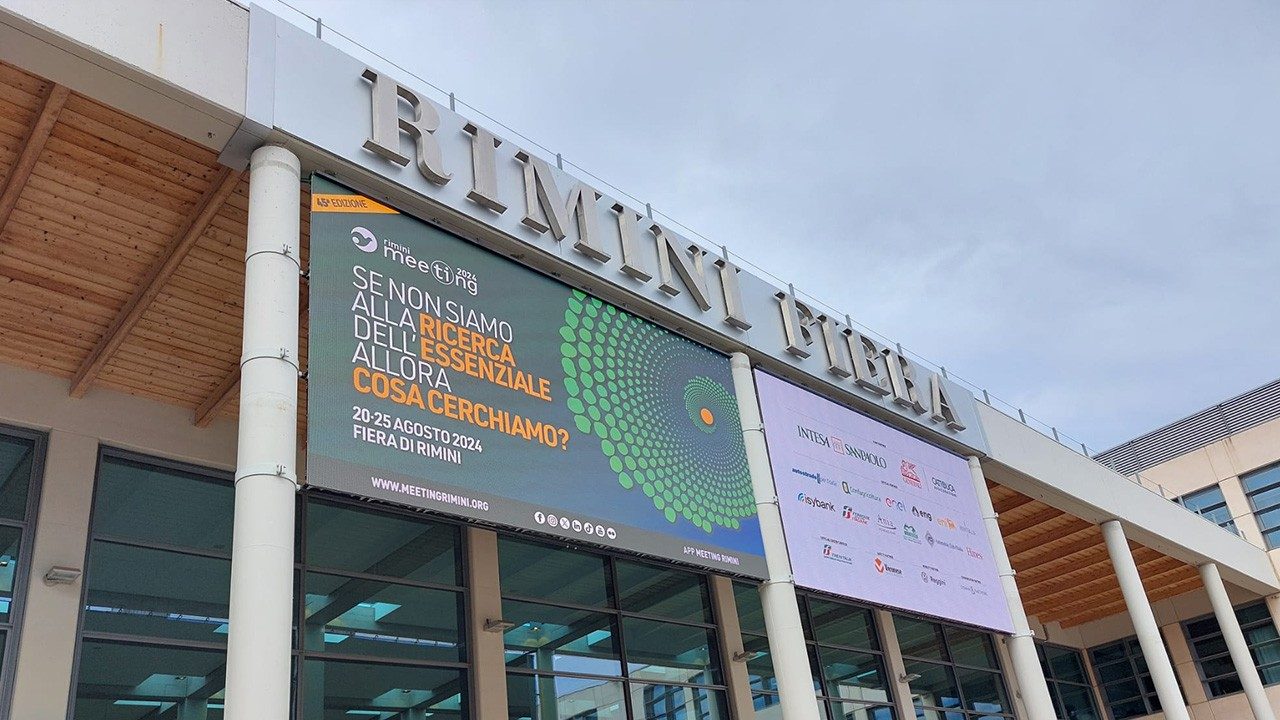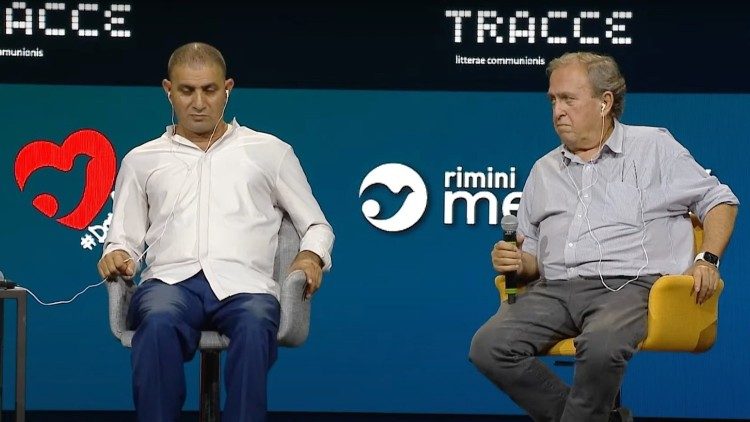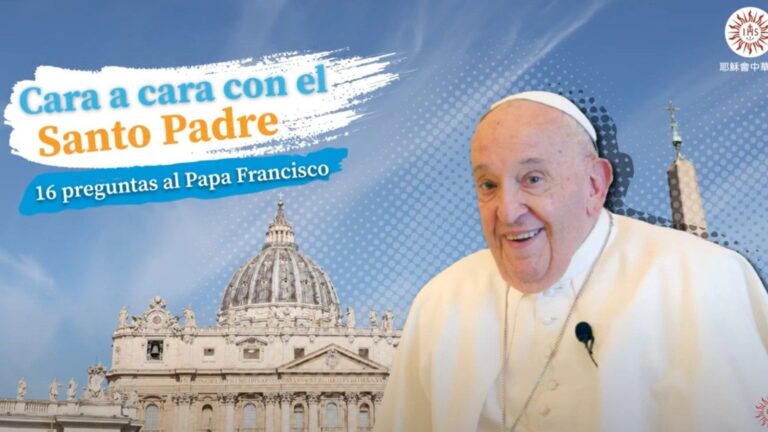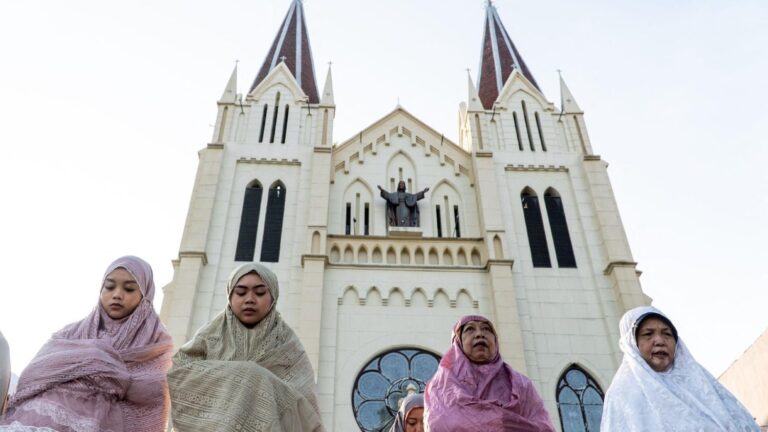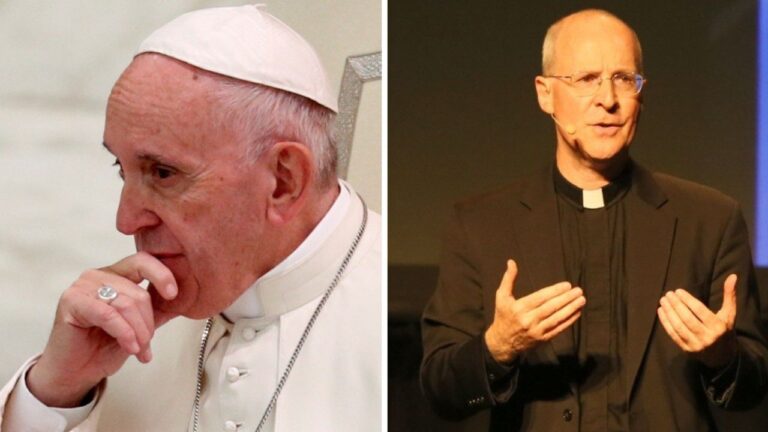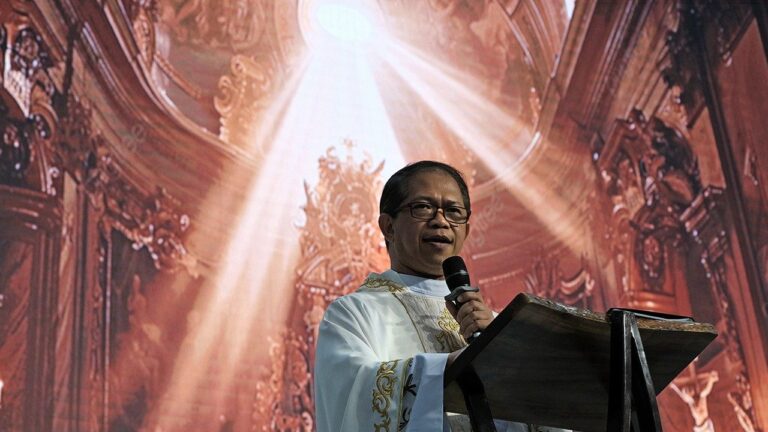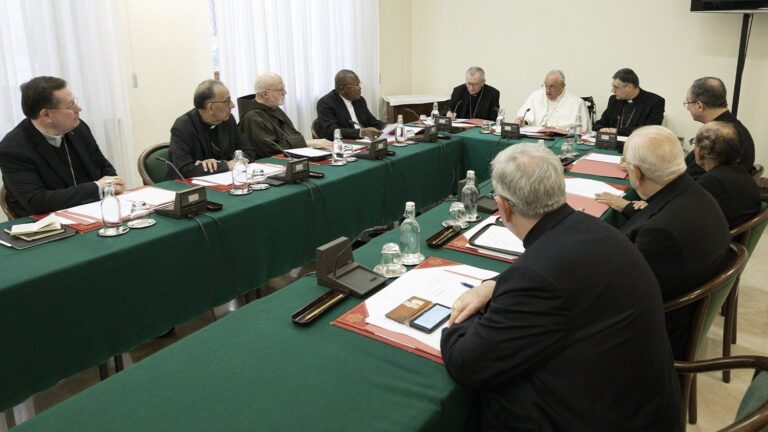Israelis and Palestinians: ‘Future depends on respect for each other’
Vatican news
As the Rimini meeting draws to a close, Rami Elhanan, an Israeli, and Bassam Aramin, a Palestinian, share their stories of losing their daughters in the decades-long conflict in the Holy Land, calling for reconciliation to transcend the war between Israel and Hamas.
By Benedetta Capelli – Rimini
On the stage of the Rimini Meeting, the photos of Abir and Smadar are projected. These two young girls look alike in the freshness of their youth, both with their hair tied back and their deep gaze.
Smadar, 13, was killed by a Palestinian suicide bomber in central Jerusalem, and Abir, 10, was shot dead outside her school by a young Israeli soldier. Their tragic, violent and inexplicable fates are part of the larger Israeli-Palestinian conflict.
Their families, like many others, have grieved and suffered, but today they bear witness to peace and reconciliation.
Their fathers, Rami Elhanan and Bassam Aramin, have been active members of the “Parents’ Circle” for years, an association founded in 1995 by Isaac Frankenthal, whose son Arik was kidnapped and killed by Hamas-affiliated terrorists.
On Friday, August 23, they took to the stage at the Meeting to present the book by Colum McCann, author of the novel “Apeirogon,” which tells the story of their meeting, their recognition of each other’s pain and their commitment to working for a different future.
It was one of the most moving encounters among the 140 events that animated the week-long gathering of Communion and Liberation, representing the search for the essential, the theme and heart of many reflections, conversations and encounters.
From Hate to Forgiveness
Bassam Aramin, a Palestinian, recalls the moment his perspective changed.
“I was in prison and I wanted to entertain myself by watching a film about the Holocaust. For me, it was a kind of revenge; I wanted to see other people tortured and killed, but instead I started crying. I realized that these were innocent people: this film, 25 years later, led me to write my thesis on the Holocaust to understand the fear present in the Jewish mentality,” he said.
Knowing your enemy means beginning to understand him, Bassam stressed. That’s the first step to sitting down together and talking.
Being Palestinian is not easy, especially under Israeli occupation, and this must stop, he said, to end the massacres.
“Hamas,” Aramin explained, “does not represent the Palestinian people but is part of the Palestinians. Oppression creates resistance, and this situation has not changed for decades; it only creates more suffering, more victims. The Israeli government must recognize the Palestinians’ right to self-determination.”
Cracks in the wall
Rami Elhanan, an Israeli, reflects on brotherhood.
“To express love,” he said, “you don’t have to experience loss to understand; you don’t have to be in our shoes. Many parents who have been through what we have been through are seeking revenge. There are angry people trapped in a cycle of violence; others die alone, but we are here, we are real, we are a living example.”
Rami talks about the amazement of many Israeli and Palestinian children when he and Bassam share their message of friendship and respect in schools.
“They look at us with wide eyes, it’s like the earth is shaking, like we’re entering the mouth of an active volcano: a river of blood flows between our two nations, and often everything changes when they hear us call each other brothers, when I say a few words in Arabic and Bassam speaks in Hebrew,” he said. “It’s like watching and hearing the cracks in a wall collapse as light shines through them.”
Respect is essential
Rami and Bassam both vividly remember meeting Pope Francis at the Vatican on March 27, 2024, and his emotional reaction when he saw the photos of their daughters.
At the conclusion of the Rimini event, Rami Elhanan declared that he had no reason to like Hamas.
“Hamas killed my daughter,” he said, stressing, however, that the events of October 7 brought the Israeli-Palestinian issue back to the forefront of the international stage.
“I don’t know the solution, but I know that our common future depends on one word: respect!” Respect, Rami said, begins with recognition of the Palestinian state. “We must end the occupation and turn a new page in our history.”
Vatican news
sc
